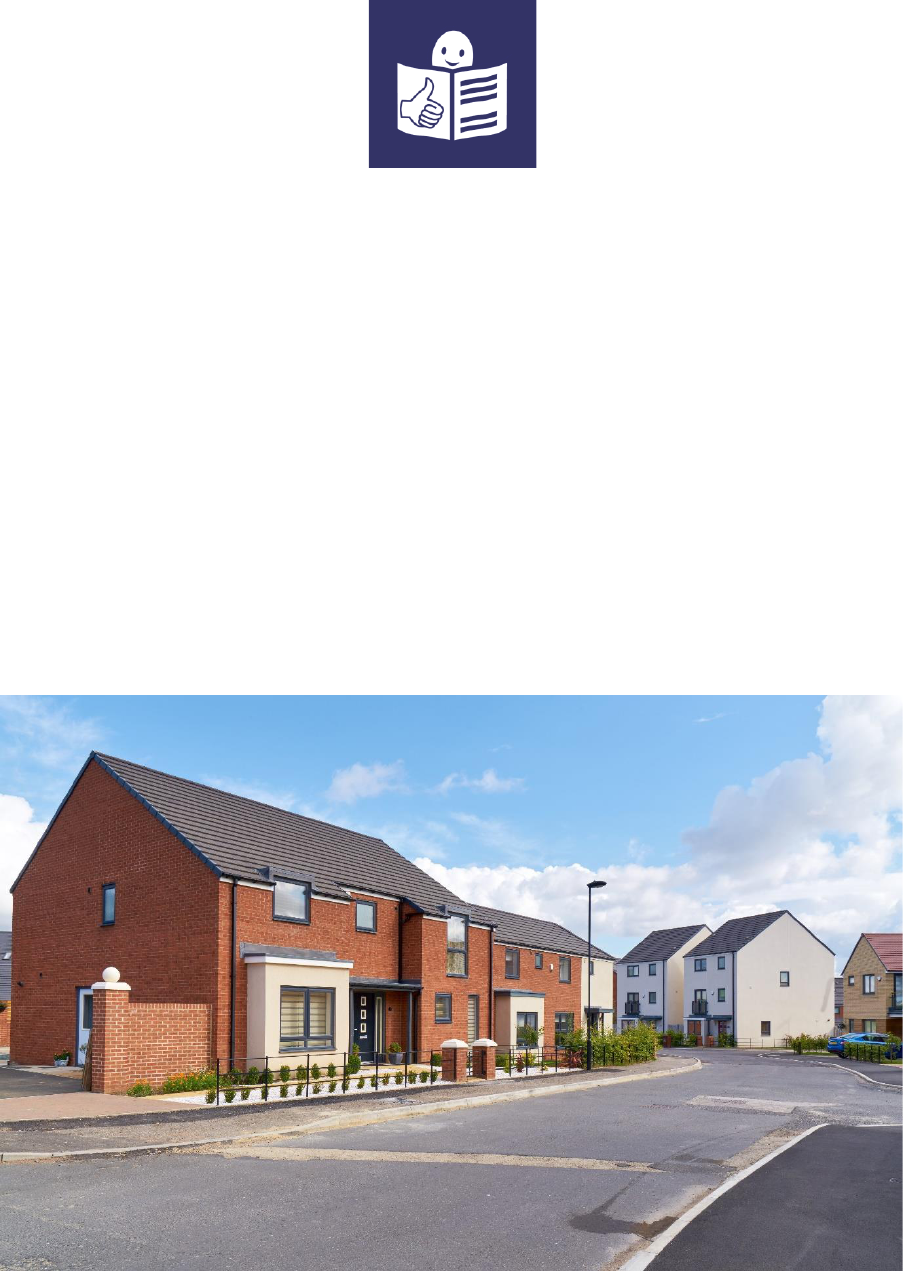
Easy to Read Guide to
Filling in the Social Housing Support Application
Form
March 2022
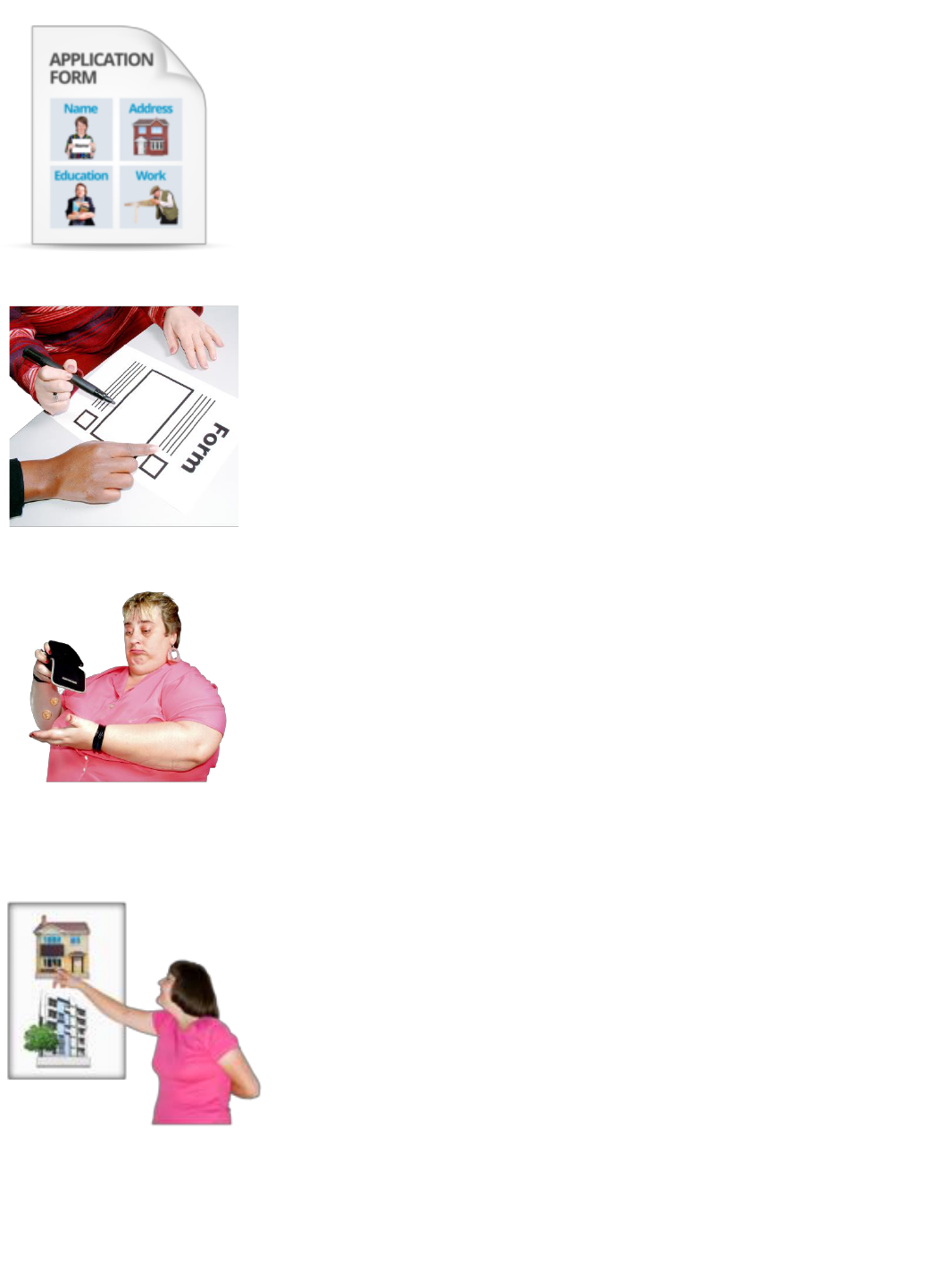
2
What is this guide about?
This guide will help you to fill out an application to your
local authority for social housing support.
You might need somebody you trust to support you to fill
out the application.
An application for social housing support includes a lot of
information and documents.
You can get the social housing support application form
from the local authority where you live.
Who can get Social Housing Support?
You can get social housing support if you do not have
enough money to pay for your own place to live in.
Where can you get Social Housing Support?
You can get social housing support from the local authority
(city or county council) or another agency called an
Approved Housing Body.
An Approved Housing Body is an organisation that can
offer housing to groups of people, for example, Clúid and
The Simon Community.
The disability service that you are connected to might be
an Approved Housing Body.
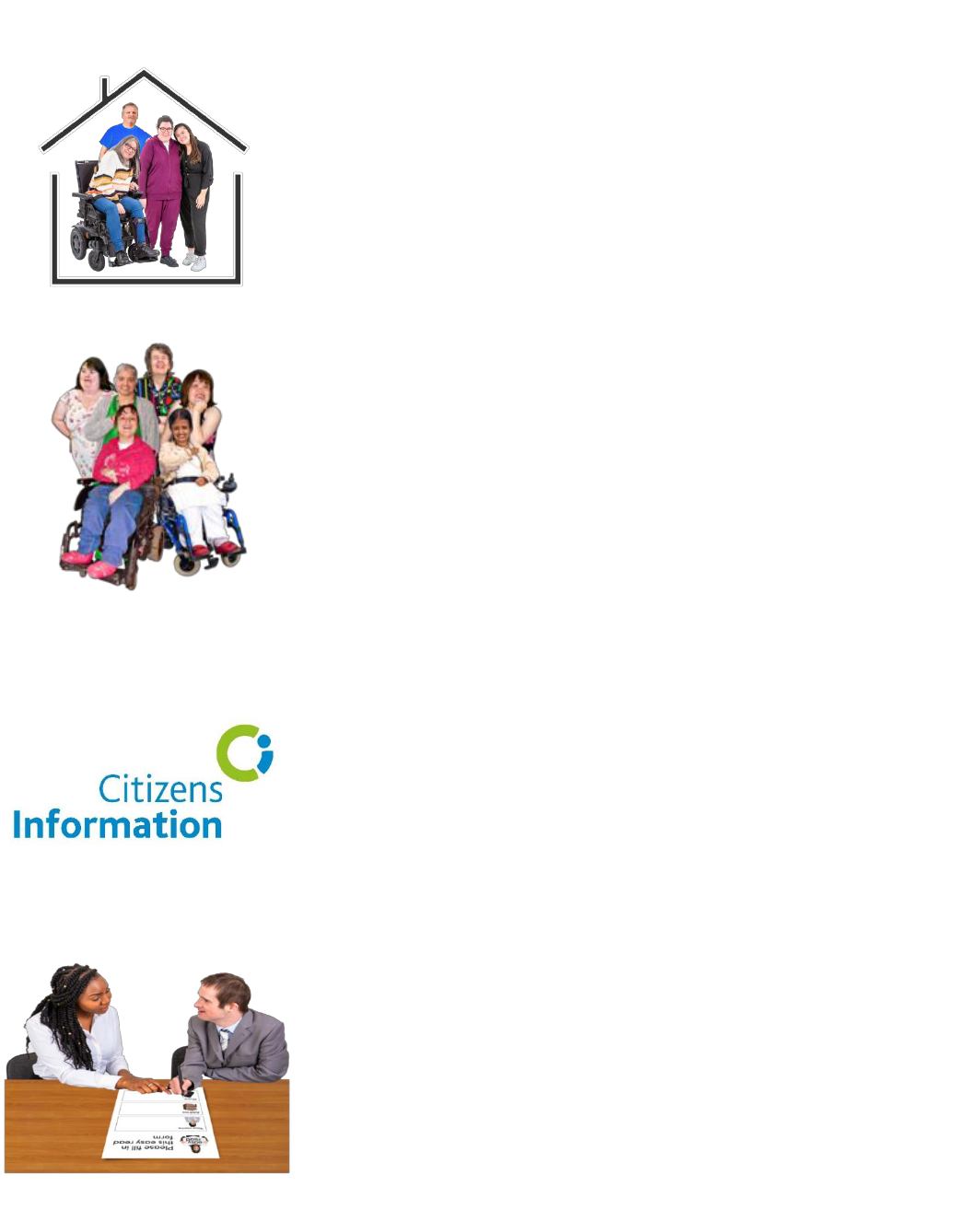
3
Types of Social Housing Support
Some of the types of support you can get from the Local
Authority are below:
You can rent houses or apartments from the local
authority or an approved housing body.
You can rent a house or an apartment through
schemes such as the Rental Accommodation
Scheme (RAS) and Housing Assistance Payment
Scheme (HAP)
Older people, homeless people, travellers, and
disabled people can get support with housing.
If you need help filling in the application form you can
contact the Housing Section of your local authority or a
Citizens Information Centre.
Someone that you trust can support you to fill out the
form too.
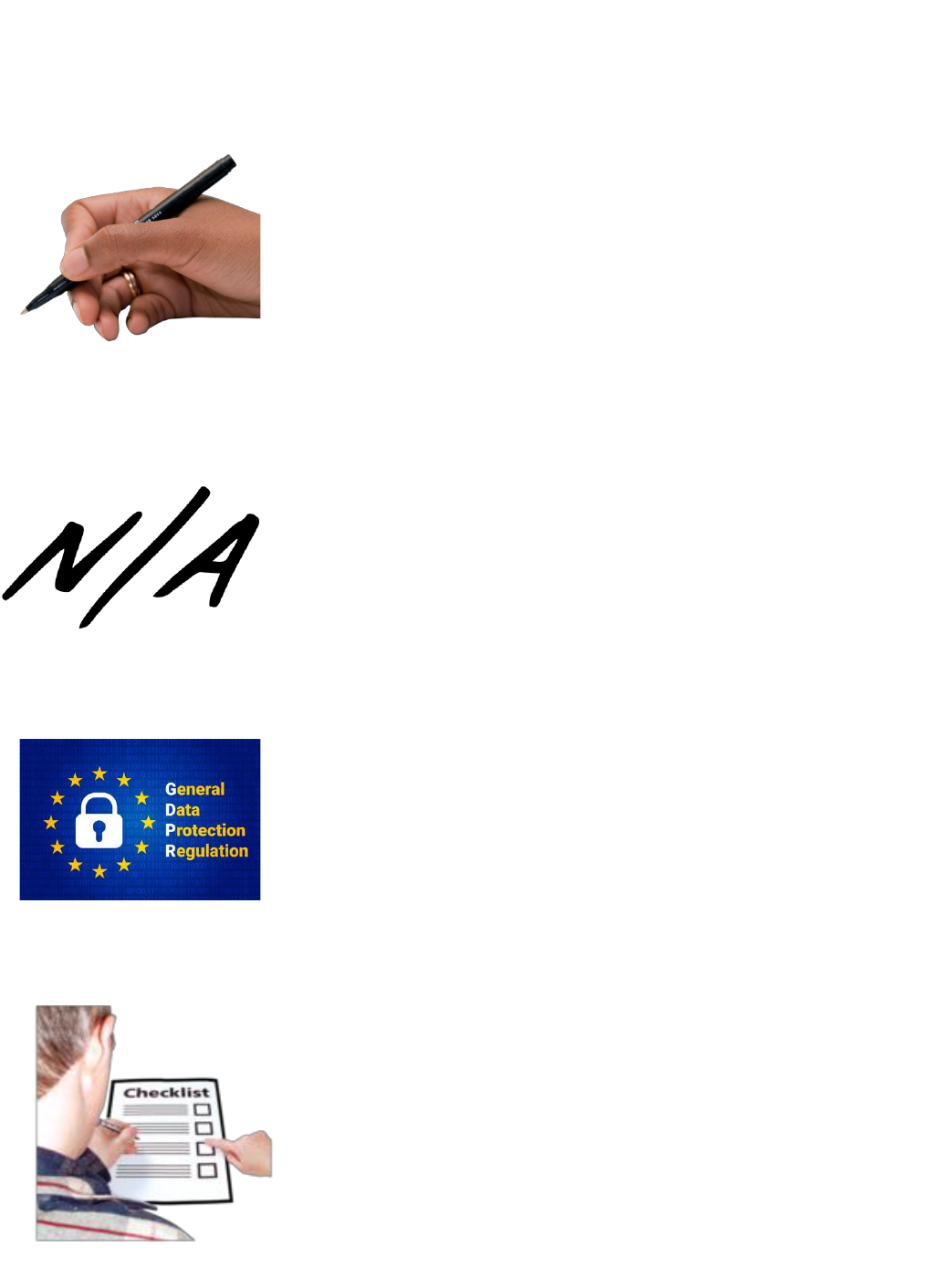
4
Important information for when you
are filling out the form.
Please write your answers clearly.
It is important that you answer all the questions on
the application form.
Your application will not move forward unless all
information we need is filled in.
You should write N/A if the questions do not apply to
you.
Make sure to sign everywhere that you are asked to
sign.
Your local authority will make sure to follow the rules
of GDPR rights and your information.
If you have any questions about this, ask your Local
Authority.
You need to send in other documents with the form.
There is a checklist to help make sure you remember
everything.
The application will not move forward unless
everything is sent in.
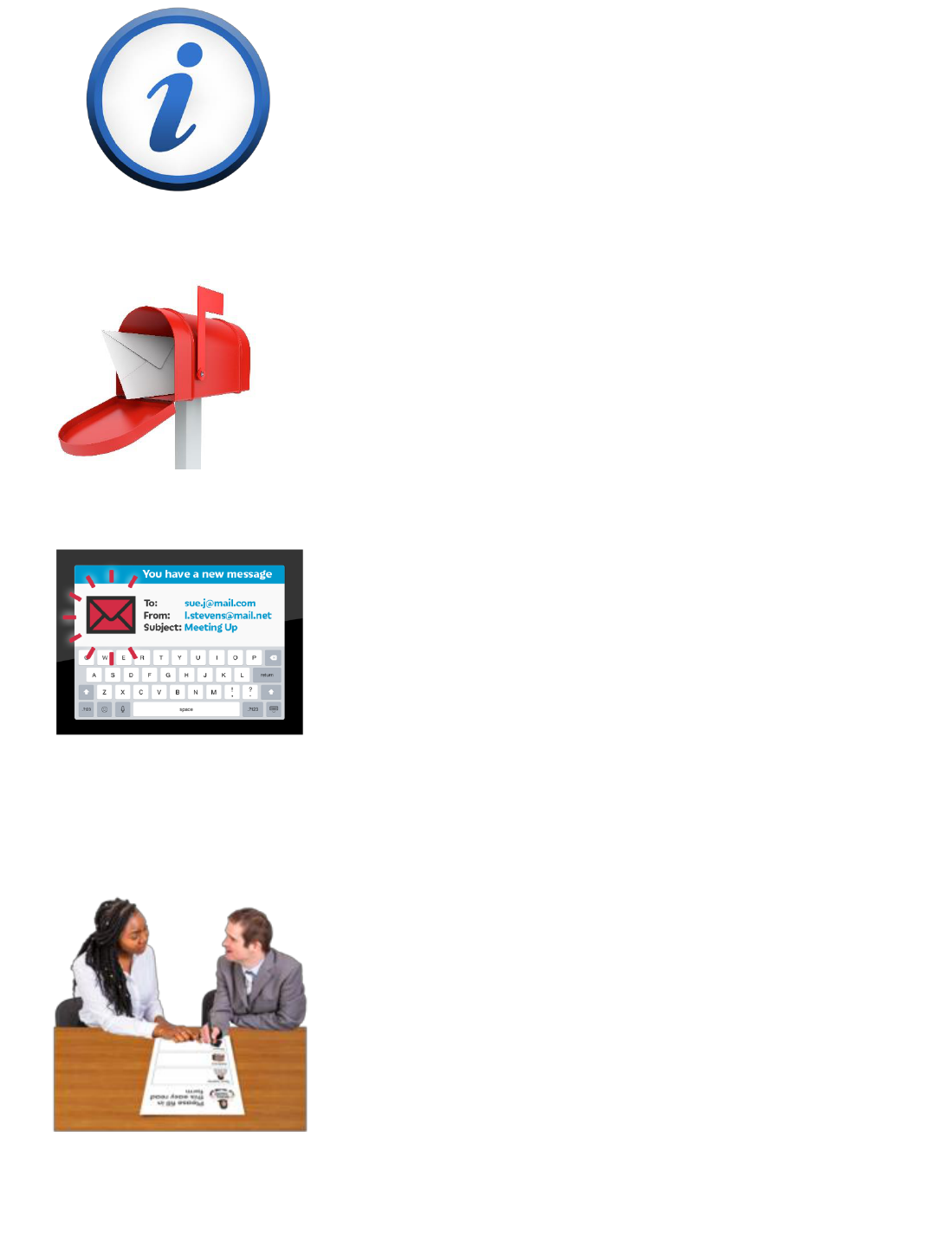
5
The Local Authority may also ask you for more
information at a later time.
If your details change (for example, if you get married
or move to a new house), you must tell the local
authority.
It is very important that you answer letters and
emails from the local authority.
If you do not answer all letters and emails the local
authority may take you off the waiting list. This
means you will not get social housing support.
You can choose someone close to you to help you
answer letters and emails from the local authority.
They are called a co-correspondent.
The local authority will tell your co-correspondent that
they sent you a letter or email.
Please take a copy of everything before you send it
into the local authority.
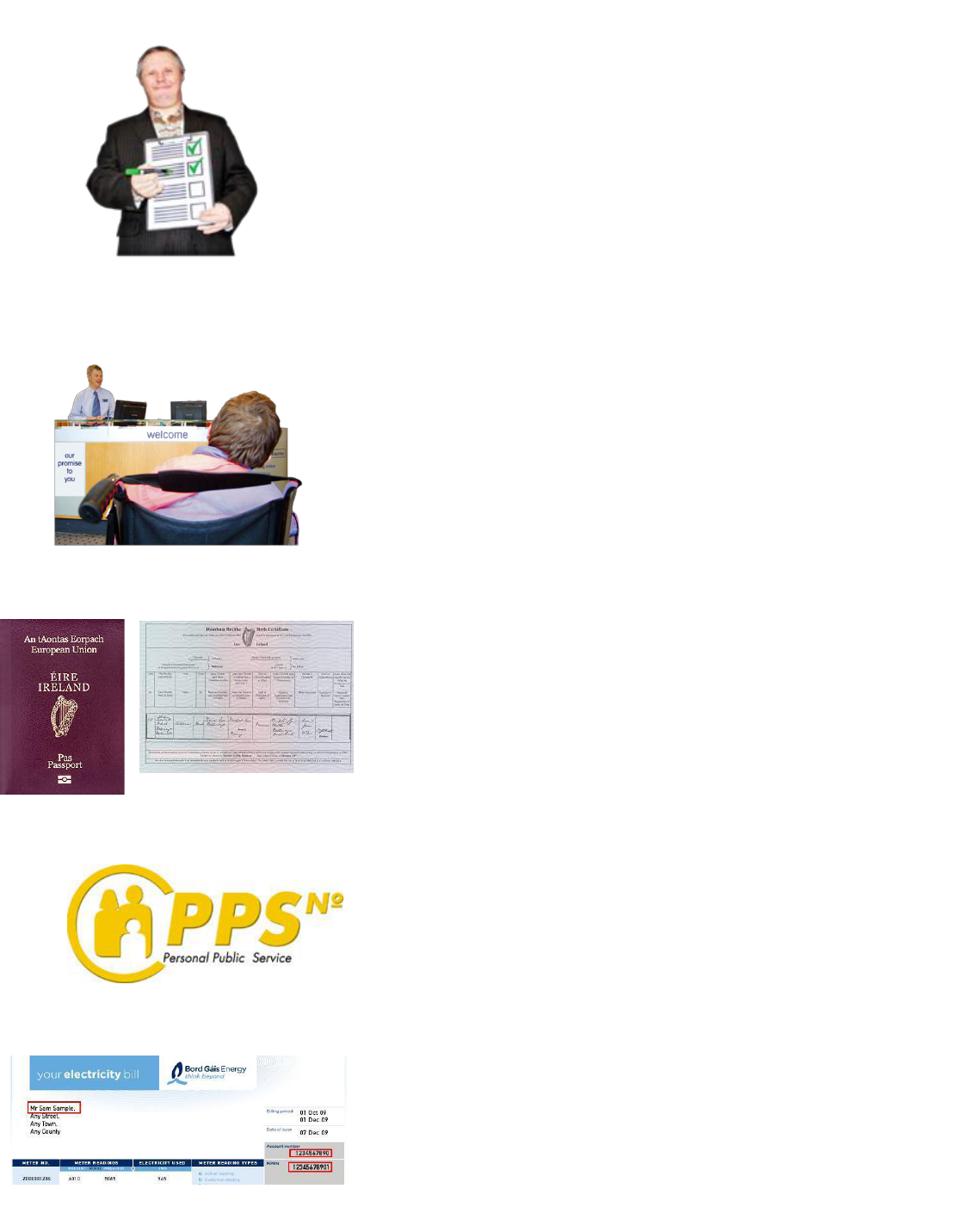
6
Checklist
The form has a checklist, and this includes all the
extra information and documents that you must send
with your application form.
You must remember to answer all the questions on
the form, or your application will not move forward.
Try to hand in your form in person at the local
authority office and they can make sure that you
have answered all the questions you need to.
They can also help you make sure you have all the
extra documents you need for your application.
We will go through and explain the extra information
and documents you need below:
Personal Information
• Photographic ID (passport or driving licence).
• Birth certs (for you and for any person who is
applying with you, like a partner)
• PPS numbers (for you and for any person who
is applying with you)
• Proof of address (like an electricity bill).
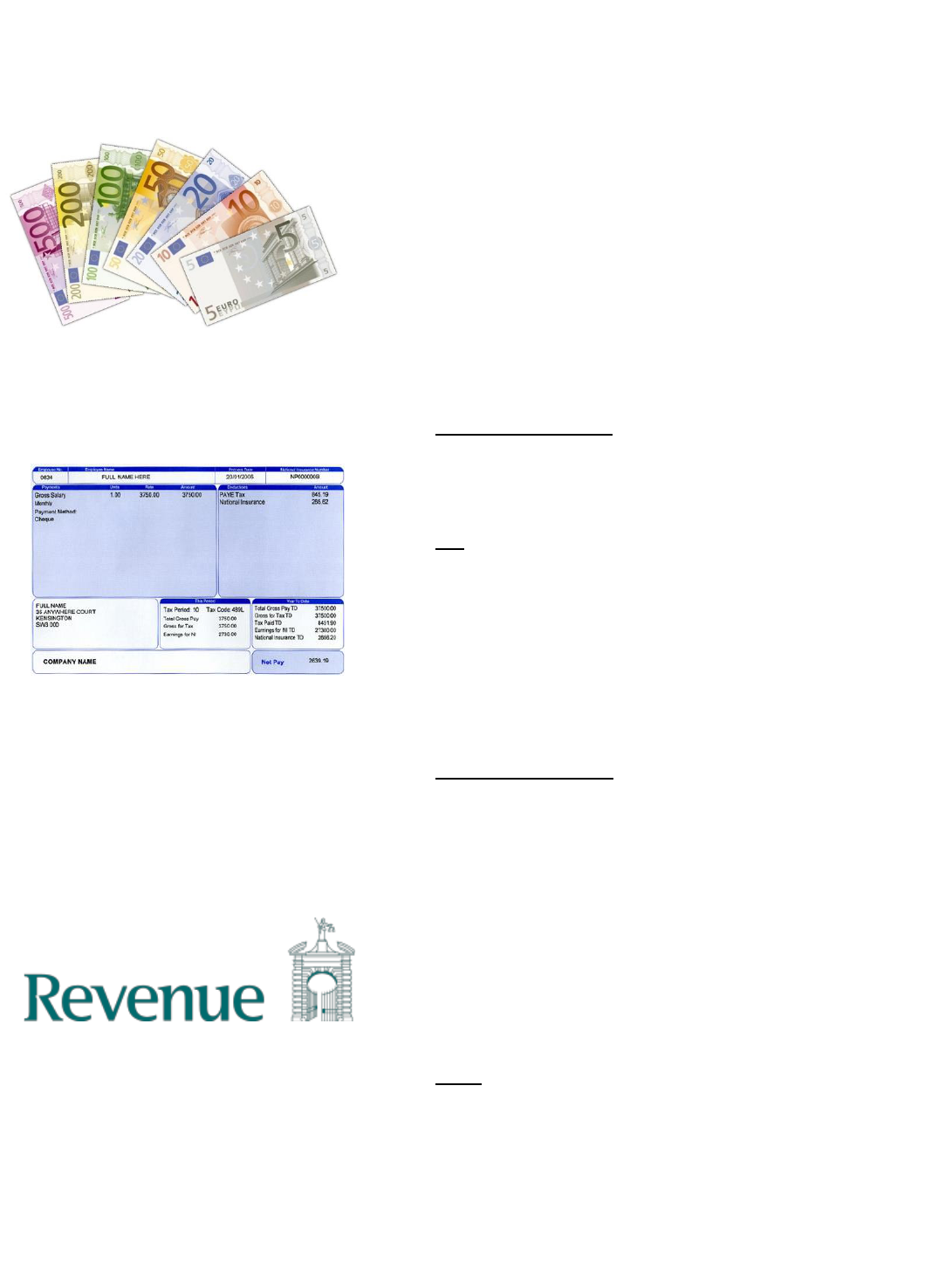
7
Income Information
We need information and proof of all the money the
people applying get, like wages and income.
Employed
• If you (and any person who is applying with you)
has had a job over the past 12 months, we will
need the following:
From This Year
• Your payslips for all jobs you have had since
January of this year.
Or
• Pay and Tax Summary (for this year)
You can get this from Revenue’s online service
(myAccount). This will include all your jobs in
this current year to date.
From Last Year
• Statement of Liability
You can ask Revenue for this through their
online service (myAccount) or your local tax
office.
The Statement of Liability is a final review of
your tax liability for a tax year. It was previously
known as the P21 - End of Year Statement.
And
• Employment Detail Summary
You can get this from Revenue’s online service
(myAccount).
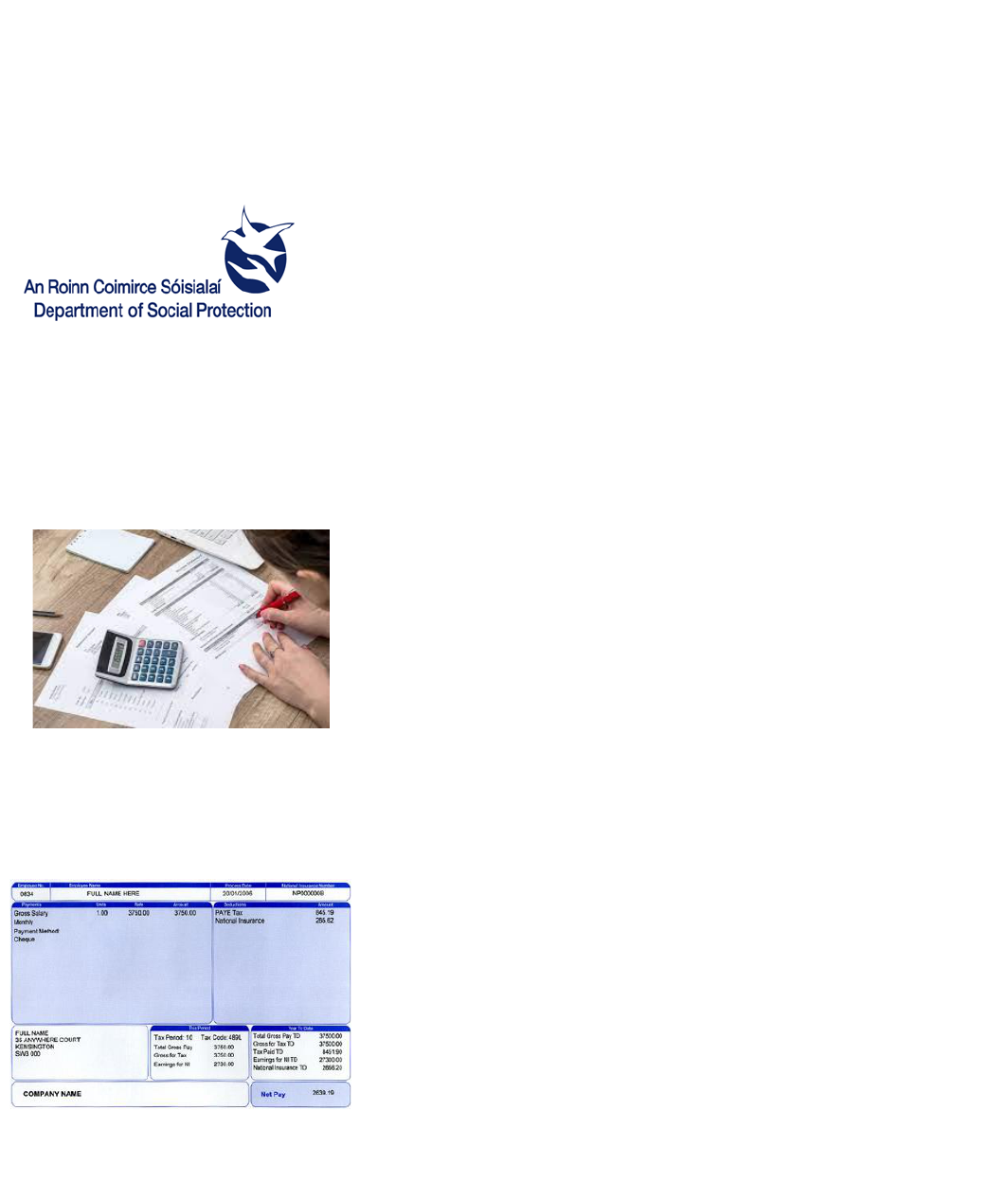
8
Income Information (continued)
Social Welfare Income
• If you (and any person who is applying with
you) get social welfare payments, you will need
to send information and proof of this. You can
get a statement from the Department of Social
Protection.
• This statement will show the money you got
from them.
Self-employed
• If you are self-employed, you need at least 2
years accounts with an auditor’s report and a
notice of assessment and / or self-assessment
acknowledgement letter (for the last 12
months).
Pensions
• If you are a member of a public service pension
scheme, or have what is called an Additional
Superannuation Contribution (ASC), then you
will also need to provide
o your final payslip from last year, and
o your most recent payslip from this year
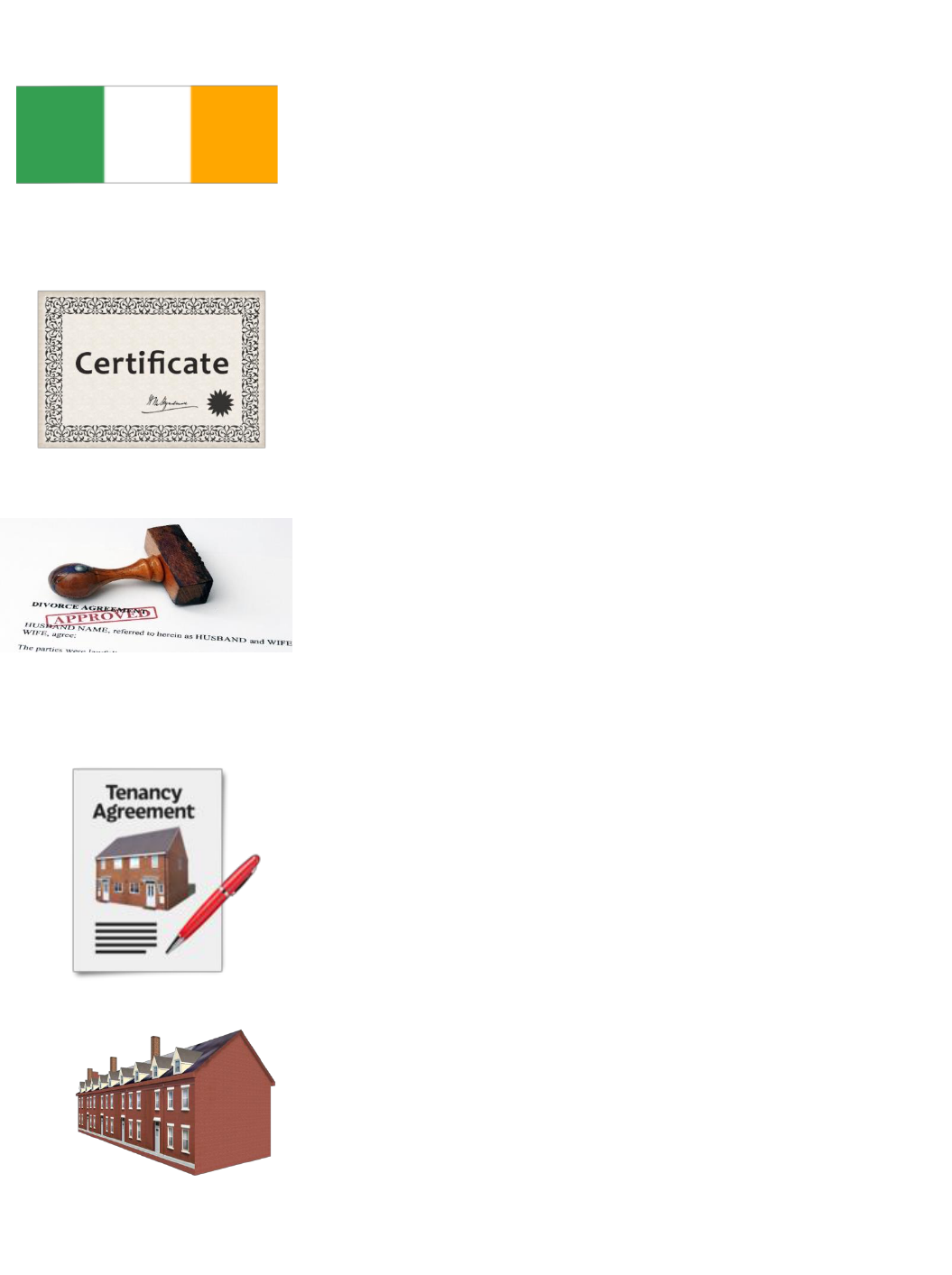
9
Extra information that might apply to you
(if it does not apply to you, you can write
N/A)
• Information and proof of citizenship or permission
to stay in Ireland for you and any person who is
applying with you
(like a letter from the Department of Justice).
• Marriage certificate.
• Copy of a separation / divorce agreement.
• Information and proof of tenancy agreement and
Residential Tenancy Board registration if you are
renting now.
• Information about any property or land you (or
any person who is applying with you) owns.
This information should include the location,
value, status of the property and any money you
get from this.
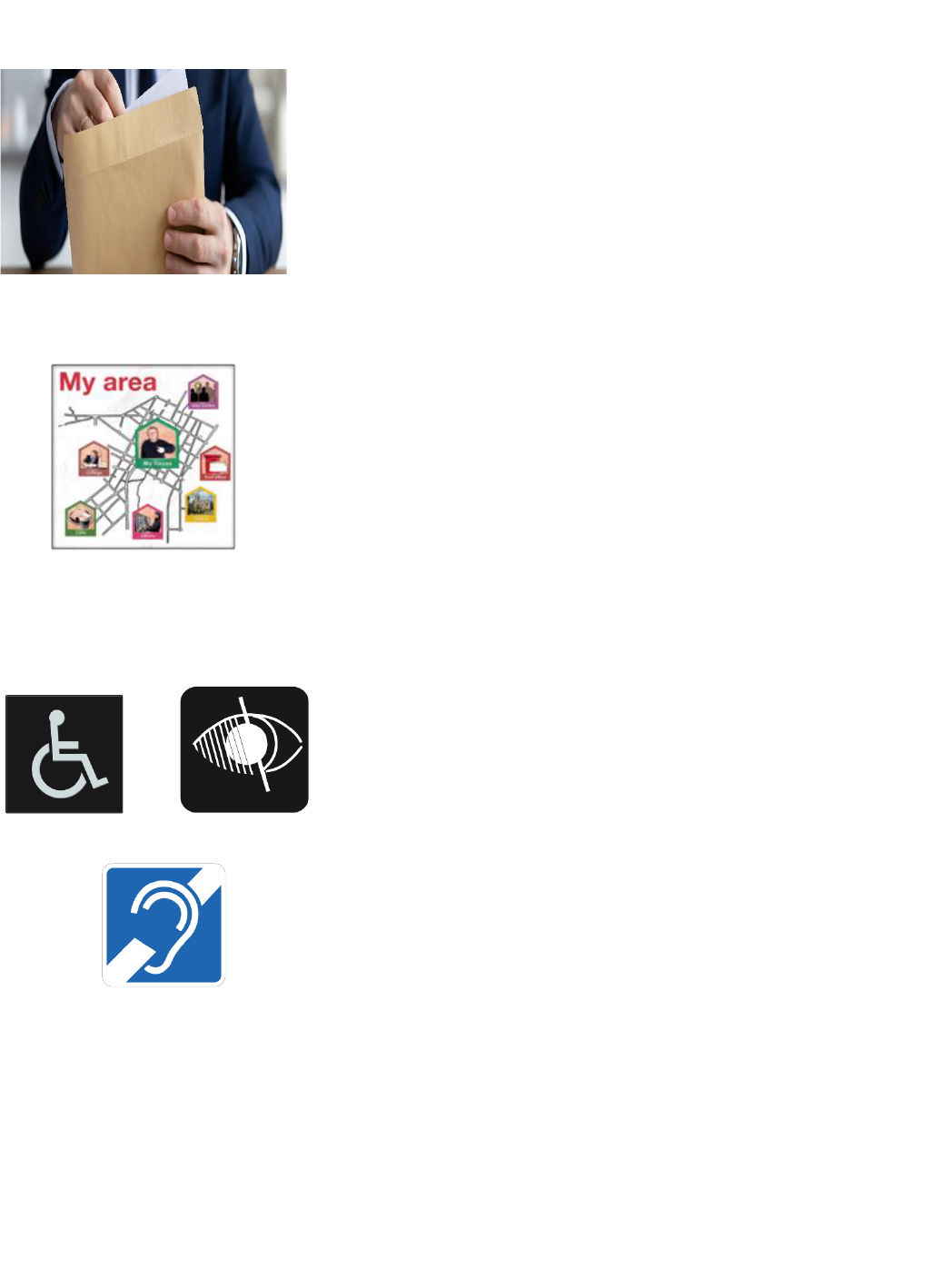
10
• If you own a house and this mortgage is in
trouble, you need a letter from the arrears
support unit of your lender.
• A letter from a local authority or Approved
Housing Body where you previously lived if you
had social housing support before.
• Information and proof of a connection with the
local area if you do not live there now, for
example, this can be proof that you used to live
there before.
• A completed Disability and/or Medical
Information form.
You can get this from your local authority. There
is more information on this form on page 17.
• An Occupational Therapist (OT) report about
what you would need in your house like
equipment or changes to a house to make it
more accessible for you.
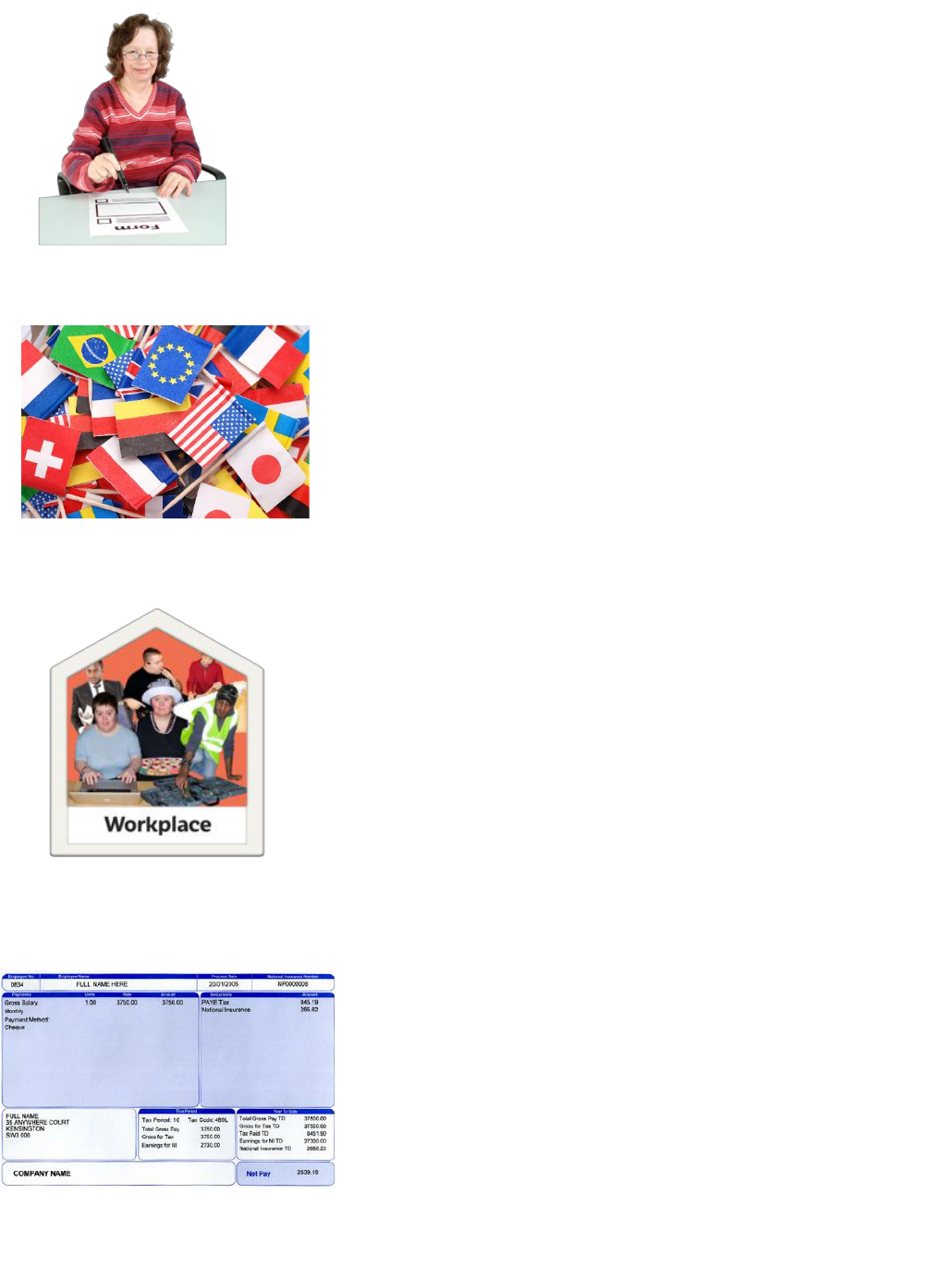
11
This form is in 12 Parts and This is a Guide to Those
Parts
Part 1: About You (Personal Details)
• This part asks for things like your name, date of
birth, current address etc.
• If there is somebody else applying for social
housing with you (like a partner), then they will
also need to fill out their personal details.
Part 2: Where You Are From
(Nationality Details)
• This part asks where you were born, what
language you speak, your citizenship status for
example, if you are Irish.
Part 3: Where You Work (Employment
Details)
• This part asks if you are working.
• It asks for your employers’ details, like their
company name and address.
Part 4: What Money You Get (Income
Details)
• You need to show your weekly income or wages
before you pay any taxes (gross pay). This can
be the money you get from working, social
welfare, or any other money you get.
• Then you need to list what is taken out of your
money (deductions), this can be things like
PAYE, PRSI.
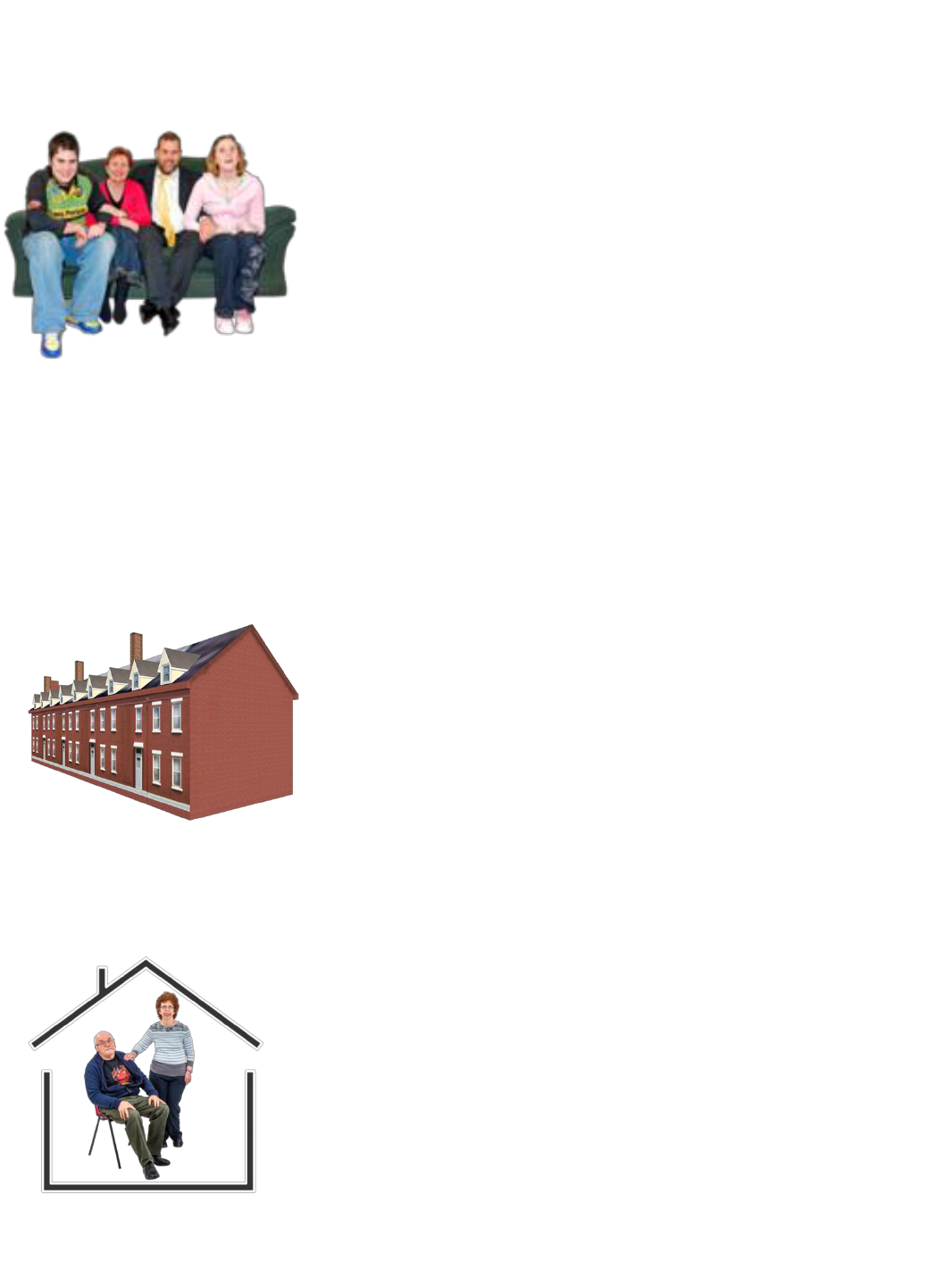
12
Part 5: Other People Applying with you
(Other Household Members)
• This part asks for information about the other
people who will live in the same house as you. For
example, your partner or any children you have.
• You need to give details like their names, date of
birth, country of birth, citizenship status, gender,
marital status.
Part 6: Where You Live Now
(Current Accommodation)
• This part asks about where you currently live and
details on this.
• It asks if you own or rent the house you live in
and what kind of housing it is.
• If you are renting, you need to give information
and proof of this.
• It asks for the reason you are looking for support
(like disability reasons).
• You then need to explain what is in the house you
live in now.
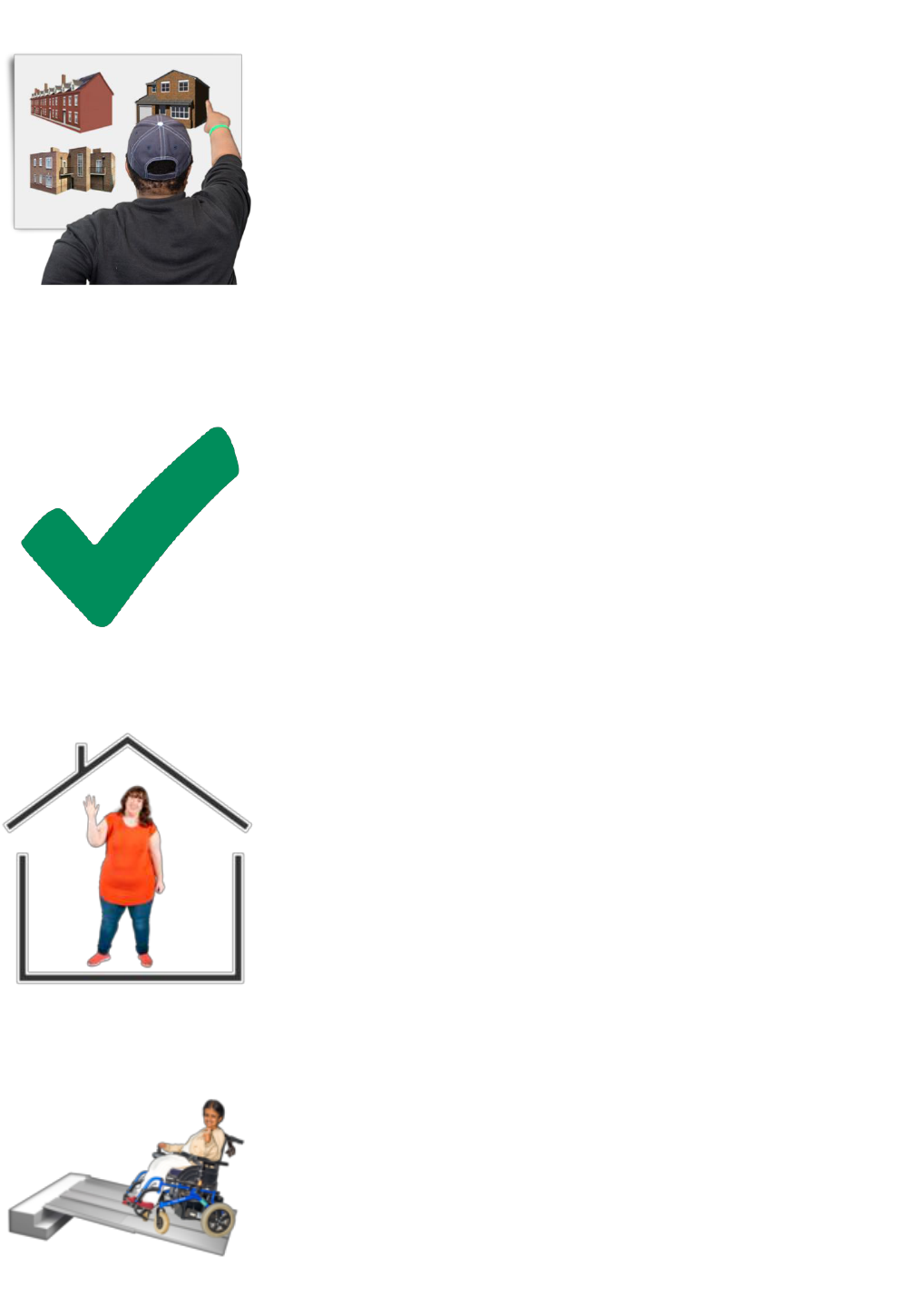
13
Part 7: Where You Have Lived Before
(Accommodation History)
• This part asks you to give information about where
you have lived over the last 5 years.
Part 8: What House Do You Need
(Housing Requirements)
• This section asks if you identify as an Irish
Traveller.
This is to know if you are a Traveller and would
like to be included in Traveller Accommodation
Programmes.
This gives local authorities information they need
to improve their Traveller Accommodation
Programmes.
This information will not affect whether a person
is eligible for social housing supports.
• This part also asks what housing support you need
to make your home more accessible. For example,
changing the bathroom, bedroom or putting in
ramps.
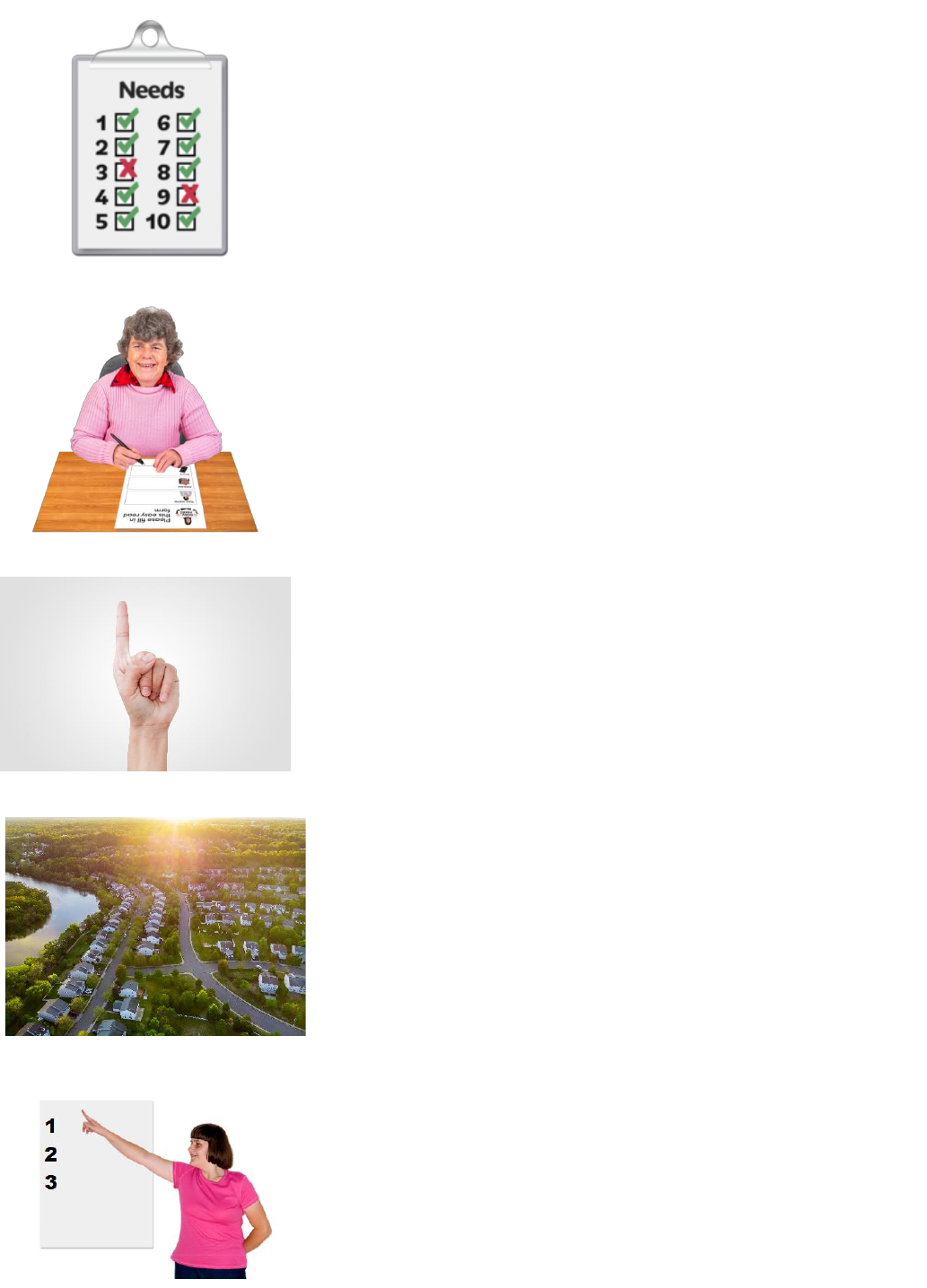
14
• If you are applying on medical or disability
grounds, you will be asked to give details about
your needs.
• If you are applying on medical or disability
grounds, you will also need to fill out another
form, the Disability and/or Medical Information
form.
You can get this from your local authority.
There is more information on this form on page
17.
Part 9: Basis for Application
• You can only apply to one local authority for
housing support.
• The name of the local authority for where you
would like to live will be on the front of the
application form.
• This local authority must be in the area where
you usually live.
• You will be asked to choose where you would
like to live in this local authority.
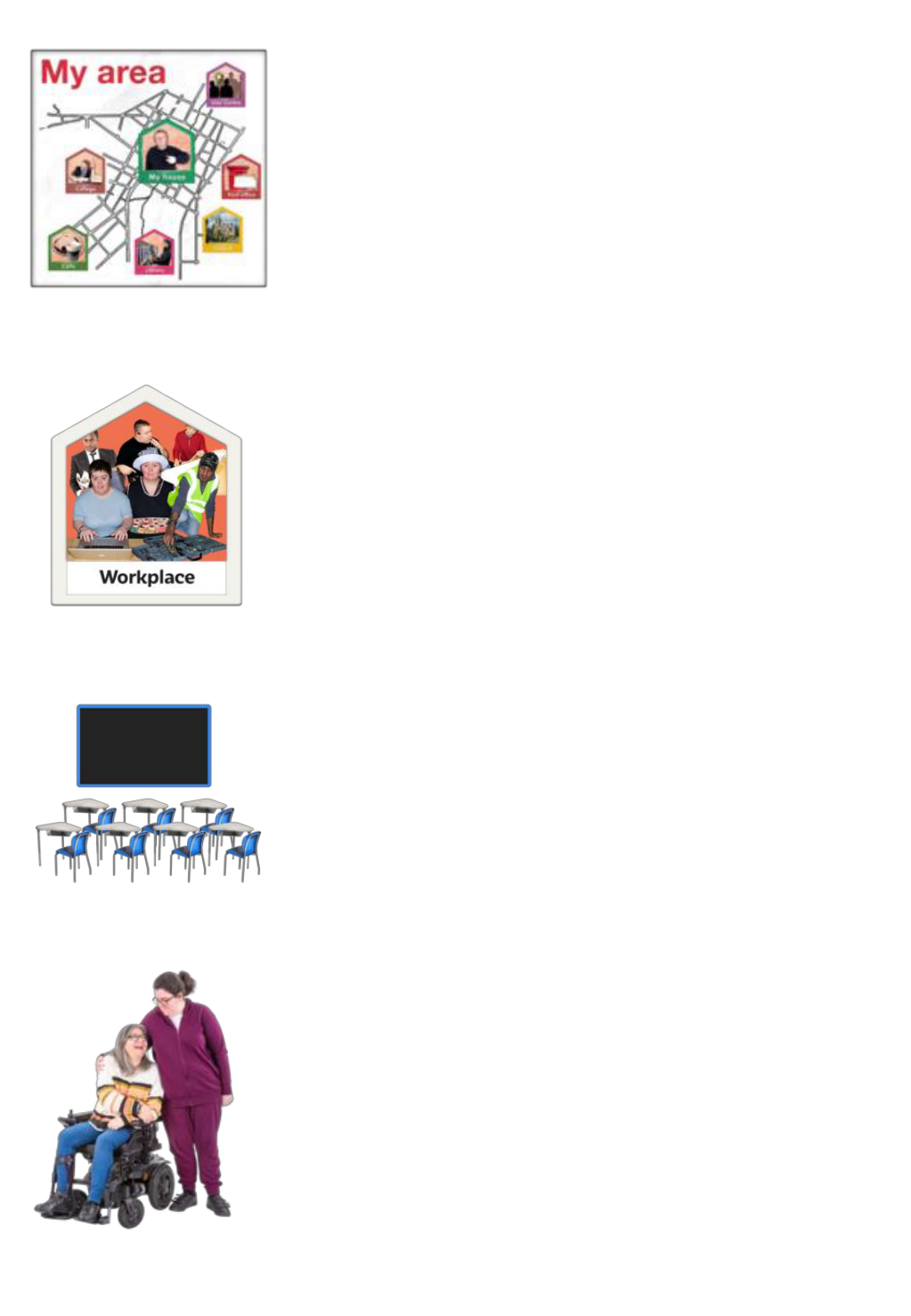
15
• You should choose these areas carefully, think
of things such as services, transport, links to
family and friends, and type of housing in the
areas you choose.
• You can apply to another area if someone living
in the house has a local connection to that area.
• A local connection is when someone:
o used to live in an area for 5 years,
o works within 15km of the area,
o goes to school or college there,
o needs educational or health services in that
area,
o has a relative living in the area for more
than 2 years. A relative includes a parent,
adult child or sibling.
It may also include another relative who
has a close link with the household
member.
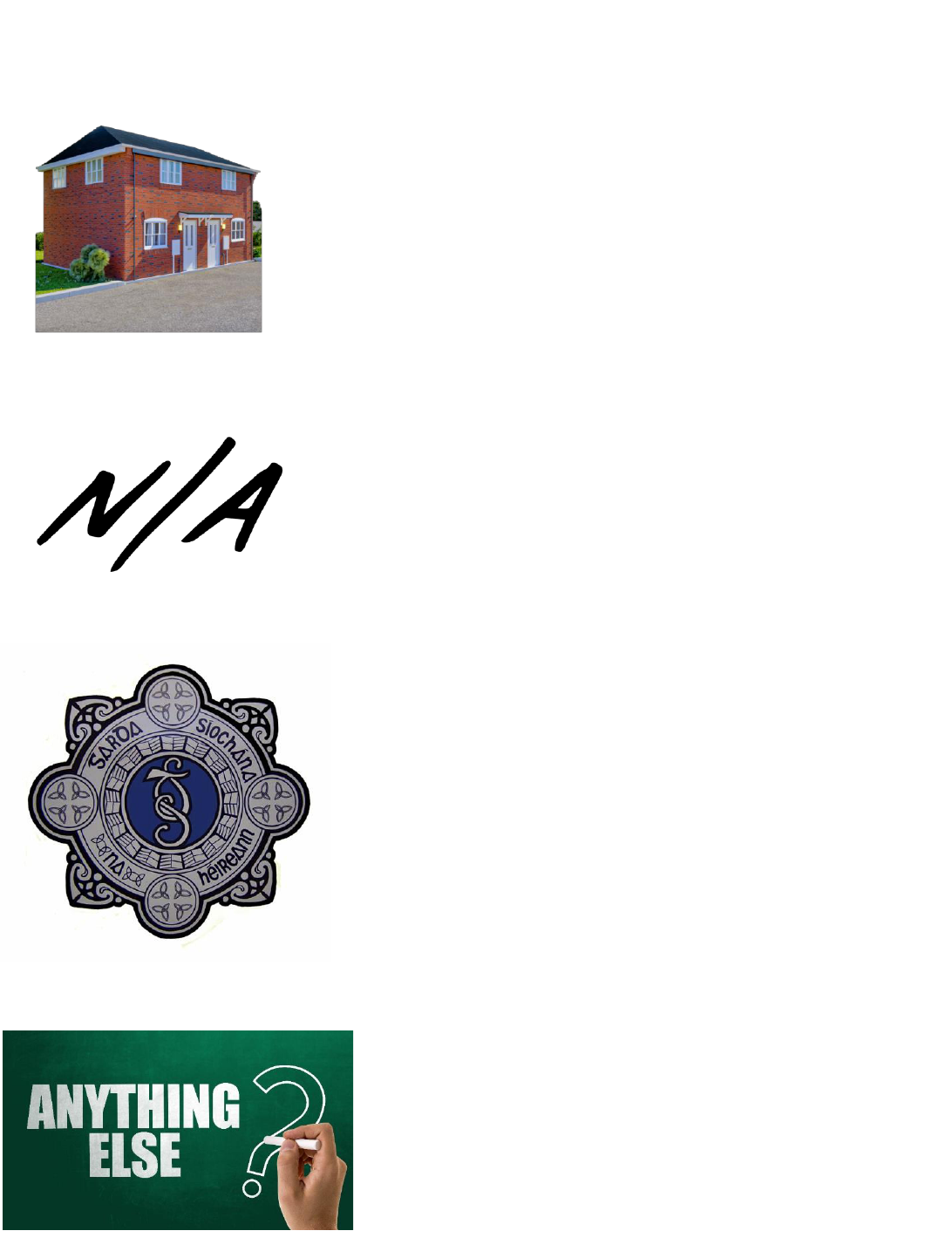
16
Part 10: Other Houses You Own
(Other Property Information)
• This part asks about any property or land you
might own.
• It asks about any property or land someone
who is applying with you might own.
• Put n/a in these boxes if these questions do not
apply to you.
Part 11: Public Order Offences and
Other Information
• This part asks if you have ever been in trouble
with the Gardaí.
Part 12: Other Information
• Add in anything else that might be important
or helpful to support your application.
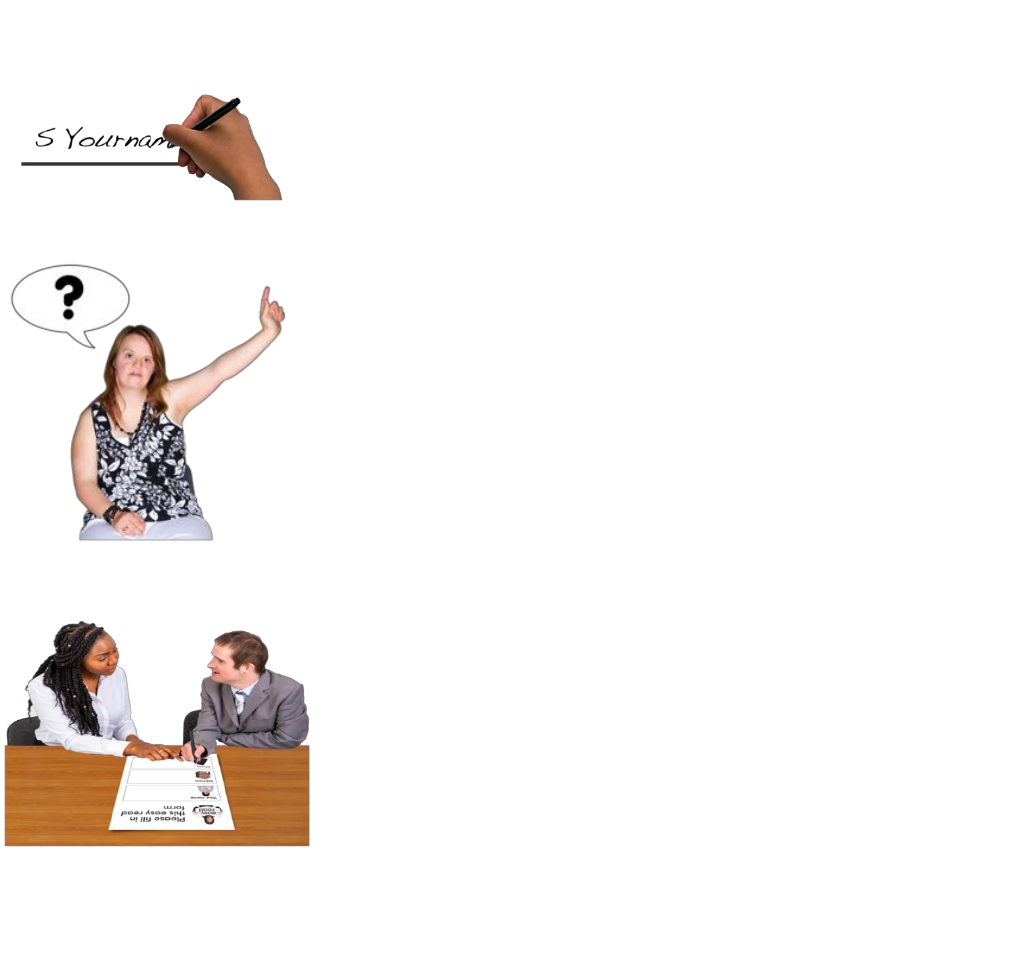
17
Declaration
At the end of the application form there is a section
for you to sign called a ‘Declaration’.
Read the declaration carefully and sign it. If there
is another person applying with you, they need to
sign it too.
If you need help filling in this form you can contact
the Housing Section of your local authority or a
Citizens Information Centre and they will help you.
Someone you trust can also help you.
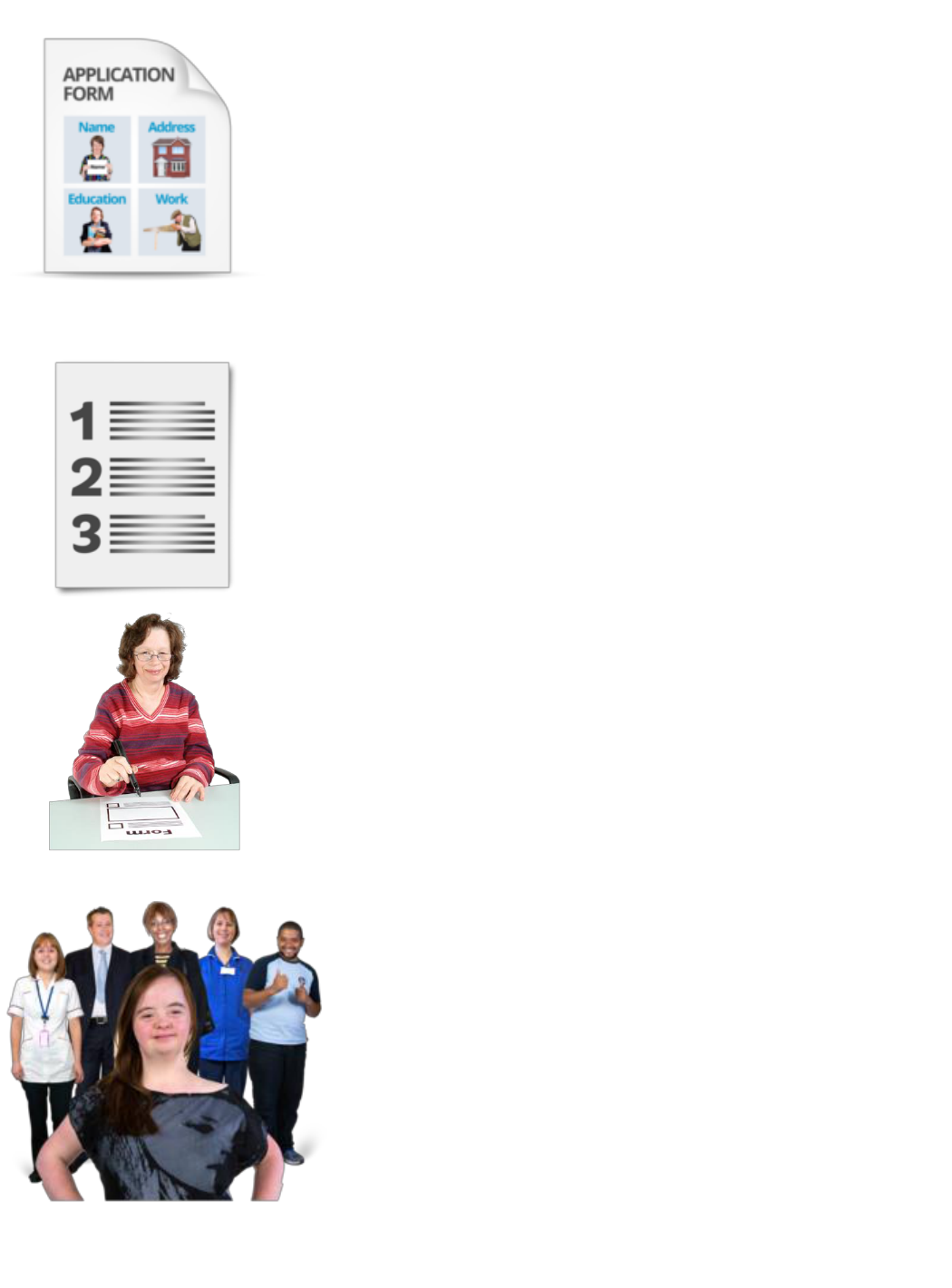
18
Disability / Medical Information Form
What Is This Form About?
If you are applying for social housing support
because you have a disability, you need to fill out
another form.
The form is called HMD – Form 1. You can ask your
local authority to give you this form.
Important Information
You may get priority for housing support because of
your disability or medical condition.
If you get priority, you will go closer to the top of
the waiting list than where the local authority has
you at.
The form has four sections. You should fill out
section 1 and section 2 yourself.
Two healthcare professionals should fill out section
3 and section 4 for you.
A Healthcare Professional includes the following
professions: Consultant, General Practitioner (GP),
Mental Health Nurse, Public Health Nurse,
Occupational Therapist or Social Worker.
You may need an Occupational Therapy (OT) report
depending on your housing needs, like if you need
to change a house to make it more accessible for
you.
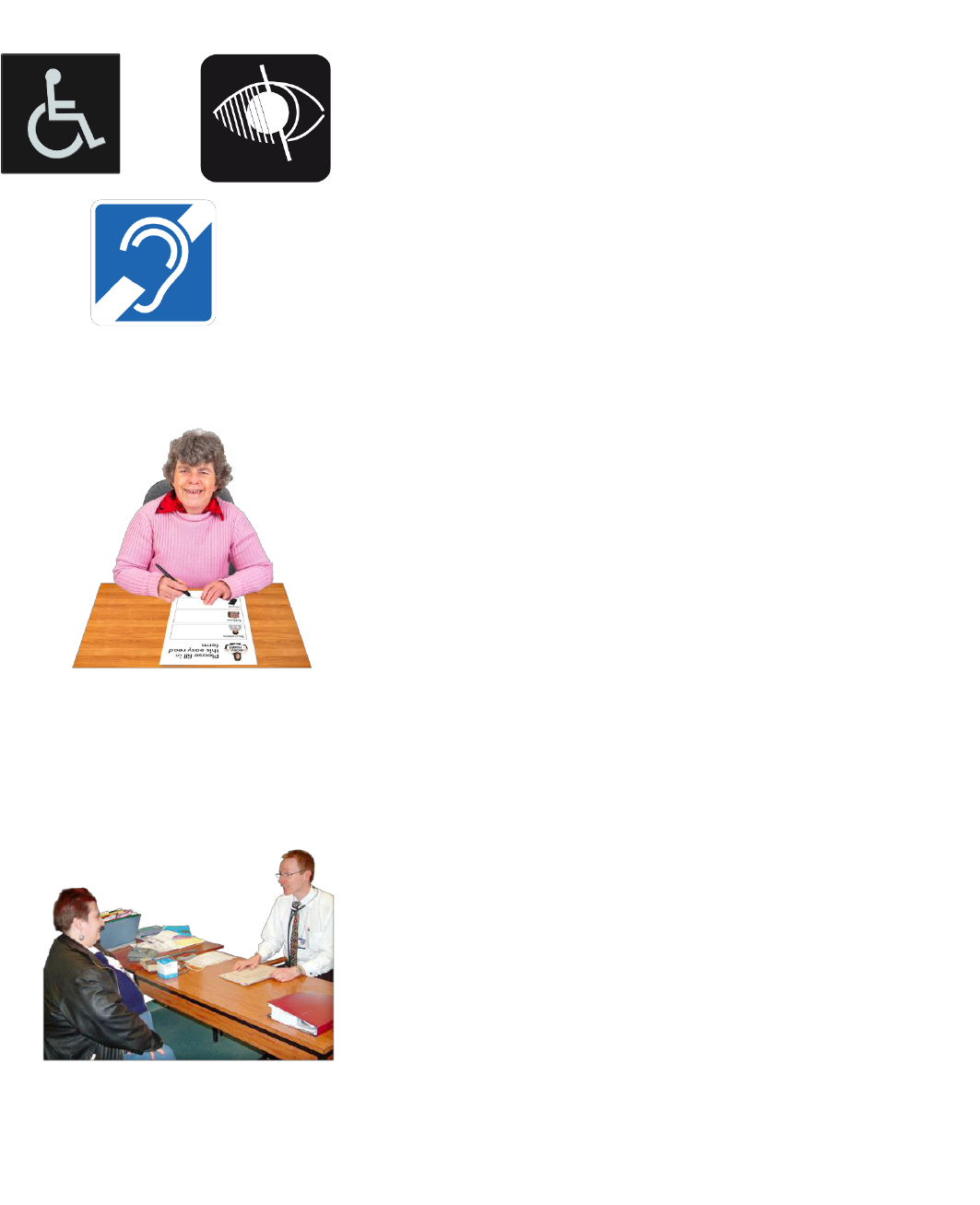
19
The Form Is In 4 Sections and This Is A Guide to Those
Sections
Section 1: Disability and / or Medical
Information
• This section asks you to fill out information
about your disability and / or medical
condition.
Section 2: About You (Personal
Details)
• This section asks you to fill out information
about yourself for example: your name and
date of birth.
Section 3A: Healthcare Professional
Details
• The two healthcare professionals fill in their
contact details in this section.
• They will fill out some of the parts of the
form to support your application.
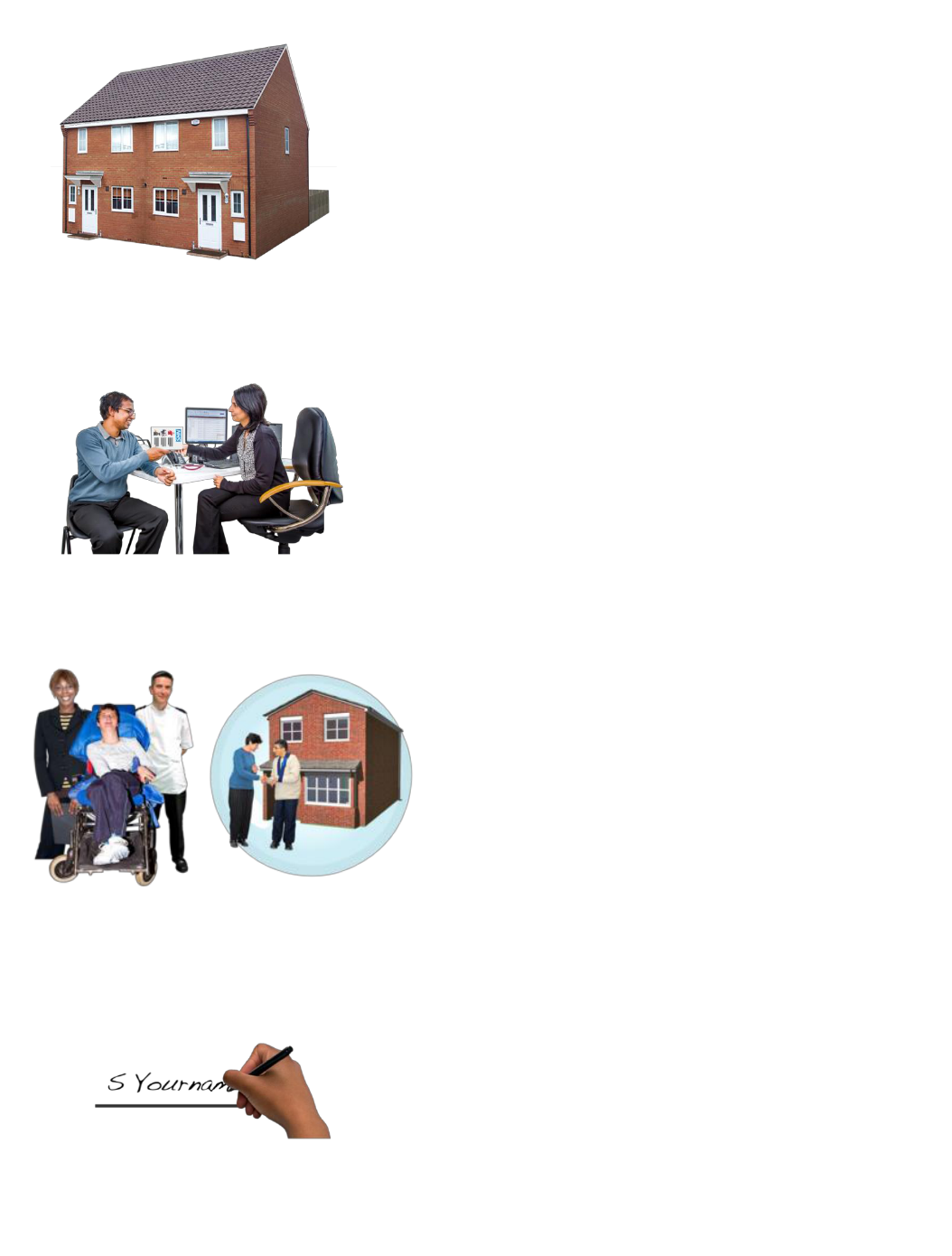
20
Section 3B: Current Accommodation
Details
• This section asks the healthcare
professionals about where you live now and
if it is having a bad effect on you.
Section 3C: Accommodation Details
• This asks the healthcare professionals how a
change in where you live will be a good thing
for you.
Section 3D: Support Needs
• This asks the healthcare professionals about
the supports you need to live independently.
Section 4: Healthcare Professional
Declaration
• The two healthcare professionals sign and
date the form.
